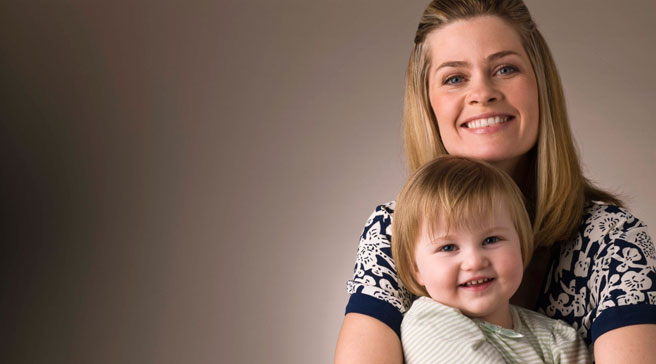Brood awakening
Having children affects how our brains develop, and forces us to learn flexibility and new skills. David Servan-Schreiber explains why bringing up a child can be the best therapy

Distraught, Catherine watches her four-year-old daughter in floods of tears. She thought she was doing the right thing, making her finish her pottery so the teacher could move on to the next activity. She’s dying to shout, ‘Just stop crying!’ But she can hear herself turning into her mother, so she controls herself: that kind of treatment never helped her as a child.
She realises that, in fact, it is her own anxiety for approval from the teacher that has led to her reaction, and that has spoilt their enjoyment of the summer workshop.
What parent hasn’t had to cope with their child’s tantrums in the supermarket? Or sat up at midnight comforting their sobbing and inconsolable teenage daughter, caught between loyalty to her best friend and the advances of her boyfriend? Impossible situations, we believe, for which we must find in ourselves unexpected resources. Yet, by surpassing our initial reaction — be it powerlessness or exasperation — we find ourselves growing.
Successful psychotherapy does precisely this. In discovering unexpected resources, we exceed our old capacity to understand and manage our emotions — and those of others. The dependent relationship we have with our children is a steep and demanding learning curve, without an escape route. They impose themselves on us totally. It’s not just a phone call or email once a week; children need our undivided attention. We have to understand their needs, learn to empathise with them, arrange our time around them, accept that they will make us question our behaviour, and try our patience.
And there’s no question: as parents, we have to learn flexibility and new skills. Influenced by their children, parents’ brains actually develop differently. We have recently discovered that the brain continues to create new neurons into adulthood. The more it is stimulated by new experiences and emotions, the more these cells develop. Not only is the rate of production accelerated when we become parents, but increased levels of certain hormones, such as oxytocin, make us more resistant to stress and better able to form emotional bonds. For mothers, learning capabilities also improve.
At the University of Virginia, researchers have shown that female rats that have had babies learn more quickly and remember their past decisions more accurately. The study concludes that stimulation of neurons by pregnancy seems to reorganise the brain. Dr Mike Merzenich, of the University of California, San Francisco, believes that being a parent amounts to ‘a revolution for the brain’. A friend of mine, who works at a well-known magazine, recently remarked to me that the contributors she finds it easiest to work with tend to be parents. Perhaps because their brains, and they themselves, have learned to better understand and deal with the needs of others. Perhaps because becoming a parent has offered them the most effective therapy there is.









